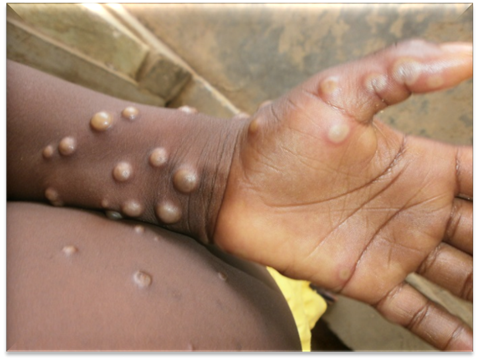The plan aims to curtail “human-to-human transmission of mpox through coordinated global, regional, and national efforts”.The plan spans the six-month starting September 2024-February 2025, and envisions a $135 million funding, the WHO said. Outside of Africa, Clade Ib is spread to Sweden and Thailand.
New Delhi: The World Health Organization (WHO) on Monday launched a six-month global strategic preparedness and response plan to stop the deadly outbreak of Mpox, declared as a public health emergency.
The plan aims to curtail “human-to-human transmission of mpox through coordinated global, regional, and national efforts”.
Earlier this month, the global health agency had declared Mpox a public health emergency of international concern.
The plan spans the six-month starting September 2024-February 2025, and envisions a $135 million funding, the WHO said.
It focuses on “implementing comprehensive surveillance, prevention, readiness and response strategies; advancing research and equitable access to medical countermeasures like diagnostic tests and vaccines; minimising animal-to-human transmission; and empowering communities to actively participate in outbreak prevention and control.”
The plan also includes strategic vaccination efforts for people at highest risk, to interrupt transmission chains. This includes close contacts of recent cases and healthcare workers.
Further, the WHO outlined that at the global level, the emphasis is on leadership, timely evidence-based guidance, and access to medical countermeasures for the most at-risk groups in affected countries.
“The Mpox outbreaks in the Democratic Republic of the Congo and neighbouring countries can be controlled, and can be stopped,” said Dr Tedros Adhanom Ghebreyesus, WHO Director-General.
He said that to contain the deadly disease, Ghebreyesus called for a comprehensive and coordinated plan of action between international agencies and national and local partners, civil society, researchers and manufacturers, and our Member States.
“The new plan is based on the principles of equity, global solidarity, community empowerment, human rights, and coordination across sectors,” the WHO Chief said.
Mpox, a viral zoological disease, is caused by the Monkeypox virus. The current outbreak — in 14 African countries — is being driven majorly by the more virulent and deadly Clade Ib.
Outside of Africa, Clade Ib is spread to Sweden and Thailand.

